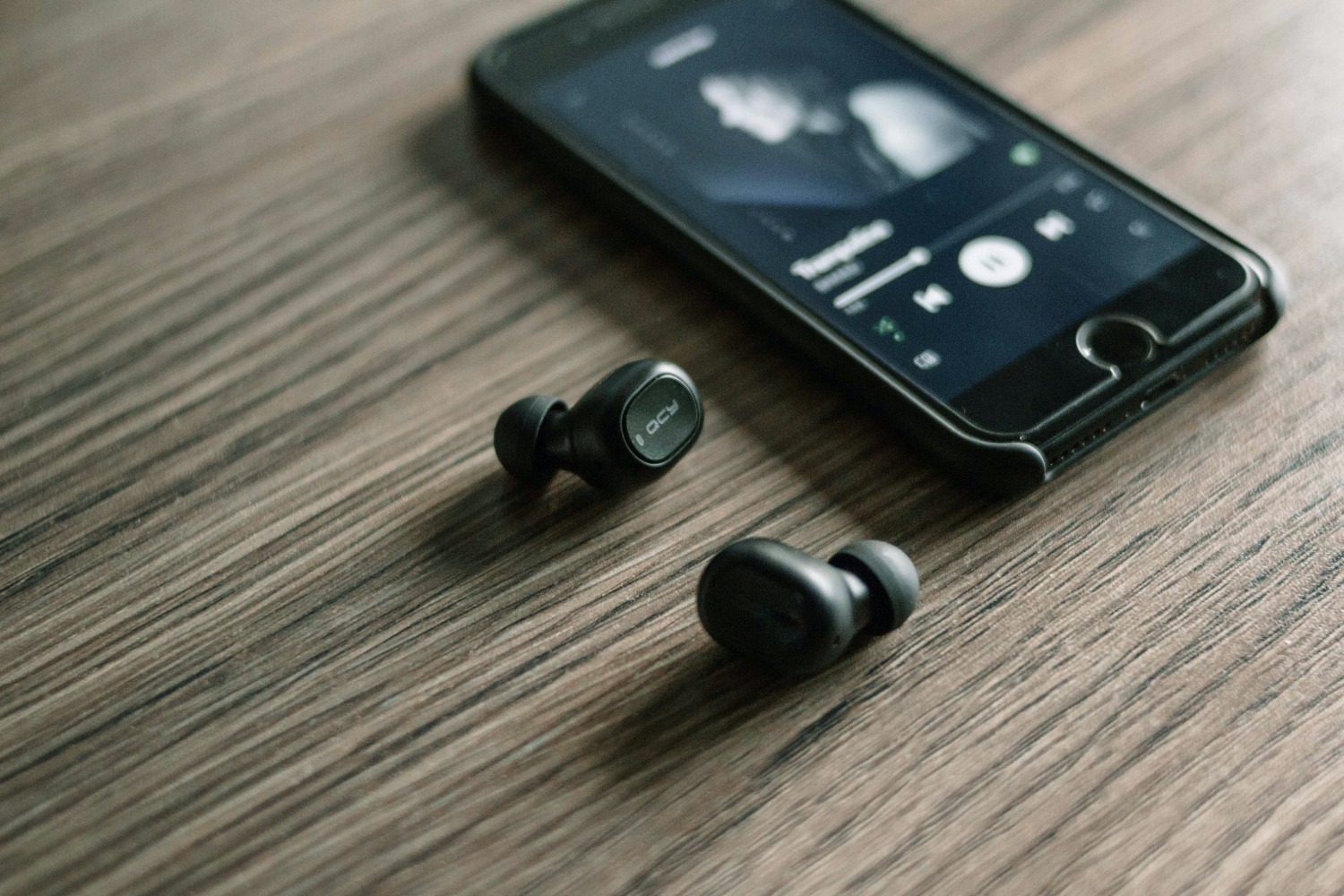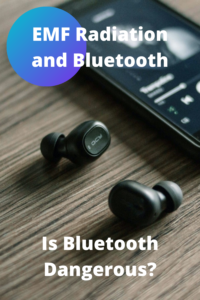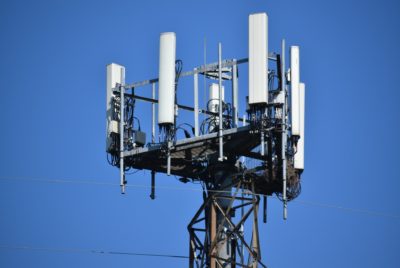In today’s world, Bluetooth technology is all around us. Fitbits, cell phones, wireless headphones – the list goes on and on. Is Bluetooth at all dangerous? I’m talking about the connection between EMF radiation and Bluetooth here. Is this dangerous? Talk to one person, and he/she may tell you no. Talk to another, and he/she may tell you Bluetooth is incredibly dangerous. That individual may be very persuasive even, and you’ll be looking to get rid of your personal stash of Bluetooth gadgets right away. Talk to a third person and he/she is unsure – but all the gadgets that use Bluetooth technology to help it function correctly, sure is fun and convenient.
Truth is that EMF radiation as it pertains to Bluetooth technology is still fairly new. We are all still unsure of the long term health effects of Bluetooth.
What Exactly is Bluetooth Technology?
Well, Bluetooth technology more or less operates by utilizing short-range wireless communication technology to link together two devices. Is it convenient? Yes. But along with this convenience some say comes with price. You see, Bluetooth essentially eradicates the necessity for wires and cables, making our gadgets more transferable. I remember back in high school I would jog with my Sony Walkman, listening to my music cassettes with wires from my device swaying back and forth. Nowadays, many people jog with wireless earbuds (Bluetooth earphones).
Obviously, listening to wicked rad 80’s music while jogging is just one example of when Bluetooth technology is used in today’s world. There are many others – fitness trackers, mobile phones, tablets and many other consumer electronics.
What is the difference between Bluetooth and WiFi?
Well, as we know, WiFi and Bluetooth both furnish us with wireless communication. Both use radio signals in order to accomplish this. The foremost distinction between WiFi and Bluetooth is that Bluetooth is designed essentially to link short-range devices in order to share data and WiFi, on the other hand, offers high-speed internet access. An additional difference between WiFi and Bluetooth is the number of devices that may be involved/connected. Bluetooth involves a limited number of devices that are connected, while WiFi can provide access to many users. Think about being in whatever terminal at whatever airport and using the free WiFi there. You and many more people are using it.
Is Bluetooth Harmful?
So, is Bluetooth harmful with regards to EMF radiation? As mentioned above, many have different opinions of this. On one side are Bluetooth device producers and telecommunication businesses. They will obviously try to counter any attempt to demonstrate that EMF radiation exposure from a Bluetooth device can be harmful. Of course, right? They also possess a great amount of resources at their disposal to do just that. And while it is true that the majority of Bluetooth products emit less EMF radiation than regulatory agencies consider to be a dangerous amount, who is to say what that dangerous amount is? After all, Bluetooth technology is not as extensively examined as cell phone radiation and various other sources of EMF/RF radiation. Is it still too young of an idea to tell the true impacts it will have? What will we find in the years and decades to come?
The other side of the story (the polar opposite side), includes a number specialists who work in the field of EMF/RF radiation exposure. Many of these experts suspect that even low level doses of EMF/RF radiation over a lengthy period of time is a large problem. While Bluetooth and wireless headphones do indeed emit lower amounts of radiation when compared to a cell phone or microwave, some health experts maintain that it is the positioning of which that is of larger concern.
Alternatives to Bluetooth – Wireless Headphones
When popping popcorn, don’t stand nearby and stare directly at the microwave, my mom would always say, as I put my head to the window and watched the bag go round and round in circles. Same is true here, with wireless headphones, as they are essentially jammed into your ear and close to your brain. Whether we are speaking of earbuds or Apple AirPods, all wireless headphones utilize Bluetooth technology. Also, the positioning of these headphones (in your ear and close to your brain) is, as mentioned above, a fairly large concern.
There are alternatives to these wireless headphones, however. Traditional wired headphones are one example. A second alternative would be something referred to as EMF radiation-free air tube headphones. These are Bluetooth free, have a small speaker away from the head and converts the electrical signal to an acoustic one before the signal reaches your ear. DefenderShield is a solid company and currently offers a popular version.
EMF-Free Earbud Headphones – By DefenderShield.
To see the previously written article on wireless headphones, here is the link.
Alternatives to Bluetooth – Fitness Trackers
Another concern for some would be the use of Bluetooth in fitness trackers. Some have a fitness tracker on their person 24 hours a day. If you’d like to play it safe with Bluetooth and wish to still enjoy the fitness tracker trend, there are some alternatives to explore. Links below to Amazon.com.
The Garmin Vivosmart HR. This is a fitness tracker that allows us to easily turn off the Bluetooth component. Features include a step tracker, calorie tracker, an altimeter that can monitor how many floors you’ve climbed, and vibration alerts to remind you to stay active.
The Samsung Gear Fit Pro 2. This is a feature-rich watch. It is water resistant up to 50 meters and comes with a heart rate monitor, step tracker, GPS tracking, and a long-lasting battery. Best of all, from an EMF standpoint, you can completely disable Bluetooth.
You may also want to take a step back from Bluetooth altogether but still want some of the benefits that a fitness tracker comes with. If this describes you, perhaps look into various pedometers out there today.
The 3DTriSport Walking 3D Pedometer, for example, can count steps taken, track mileage, monitor calories burned and discern the time. Furthermore, this device can store information for up to 30 days.
In Summary
Although many suspect the persistent use of Bluetooth (especially in wireless headphones) could cause harm, it is still fairly early in the game and maybe too soon to tell for certain. Bluetooth device producers and telecommunication businesses will say no, no need to concern yourself. Others have a very different opinion. There are few options on the market today, however, if you wish to limit your exposure to Bluetooth. And while, completely cutting ties with Bluetooth altogether may not be an option for most, we can only do what we can and see how things play out.





